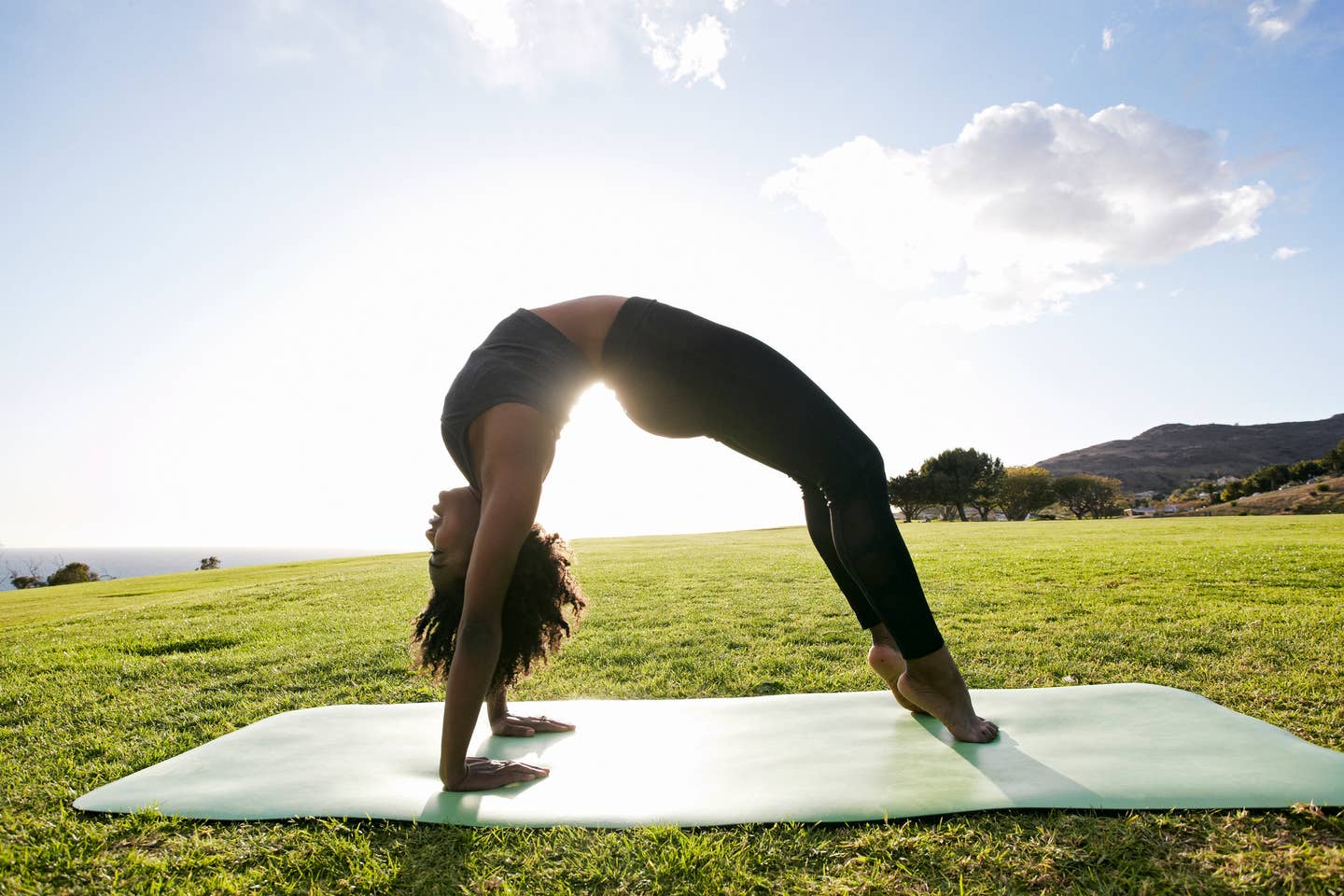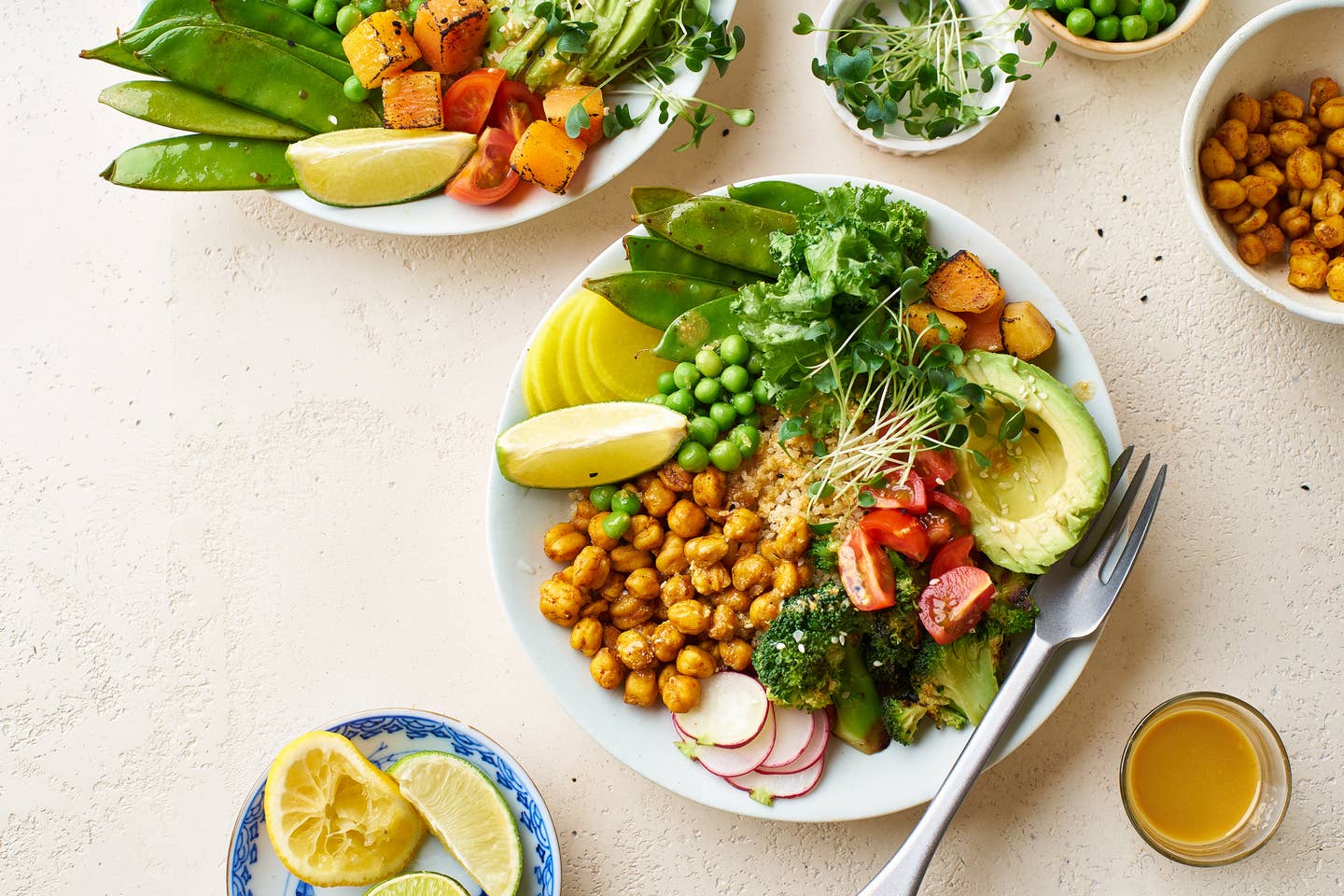
7 Self-Care Tips to Help You Deal With Stress from Doctors and RDs
We’re so tired of 2020. It's the year when we learned, once and for all: We can’t control everything that happens in the world. We can only control how we react to it. To become more resilient and keep stress levels under control, you need to practice daily self-care habits, which can give us a mental and emotional boost. “With the upcoming election, the pandemic, virtual school, and all the stress 2020 has brought, self-care is vitally important right now,” says cardiologist Nicole Harkin, MD, founder of virtual preventive cardiology practice Whole Heart Cardiology.
So what can we do these days to make ourselves feel better stat? We reached out to nutritionists and doctors and asked them to share their go-to techniques to feel better during a stressful time. Here, find a few new rituals to incorporate into your daily self-care routine.
1. Practice daily acts of gratitude, whether a journal or other affirmations
We've heard it before, but it actually works to write down or keep a note of what you're grateful for. “I've been recommending a focus on positive affirmations, such as a daily gratitude practice. Studies have shown that individuals who participate in what the literature refers to as ‘positive psychology interventions’ have improved indicators of well-being and depression,” explains Harkin. especially anyone dealing with a chronic illness. "In a pilot study, it has even been found to be helpful in patients hospitalized with a major heart attack.”
Harkin recommends a variety of ways to practice gratitude, either by actually journaling gratitude or positive life events, or looking forward to planning future events, or practicing daily acts of kindness, or simply writing down your own unique strengths. “Personally, I've had a lot of major life changes this year, and have found that taking a moment to journal what I'm grateful for to be so uplifting,” she says. Not a journaler? Create affirmations to repeat on your walk or run, to re-assert that: Life is good. You have so much going for you, and this too shall pass.
2. Get out into nature on a regular basis
“Each day I spend quality time outdoors to absorb the sunshine on my skin, appreciate the beautiful cacti and desert landscape, observe the hummingbirds, quails, rabbits, and other desert dwellers,” offers Alison Ozgur, MAT, MHS, RD. Scientifically we are known to be restored and renewed when we spend time outside and in sunlight.
Even if your local park or riverwalk isn’t quite as awe-inspiring, or is more cityscape than forest-filled, you’ll be amazed at what a difference it makes to get outside. No time? Wake up earlier to ensure you can carve out time each day to spend an hour or so around trees, flowers, or a natural body of water. “This practice helps me to stay present and always improves my mood. Nature naturally creates balance and calmness within the body.”
3. Wind down before bed with time for active relaxation
To help get a restorative night of shut-eye–that’s optimally seven hours–employ this strategy every evening before bed. “Don’t eat or drink three hours prior to bedtime, discontinue use of all electronics 90 minutes prior to bedtime, take a relaxing shower and make sure to dim the lighting in the house 60 minutes before you hit the hay,” shares Ozgur.“Quality, restful sleep is a non-negotiable in my self-care routine. Studies show that inadequate sleep can take a toll on psychological well-being and significantly increase stress levels and emotional reactions.”
And going to bed earlier is better than pushing it to after midnight, studies have shown. Your optimal sleep means not needing an alarm to wake up in the morning. Keep pushing it back until you wake up naturally and on time to work out and get your me-time (reading the papers or having breakfast or meditating) before work.
4. Set your daily intentions
Want to be an overachiever? Weekly, monthly, and yearly intentions are golden, too. Katherine Kimber, a registered dietitian in the U.K., breaks down why this practice is so important: “Setting intentions allows me to be more intentional with my working day, and most importantly, intentional with my time off too,” she says. “Just like I need to schedule work meetings and social occasions, I need to schedule downtime and off-time too to ensure this can be honored and that I make time to do things that fill up my happy tank!”
When you first start jotting down your intentions, try writing down a few sentences each morning, or simply pick a guiding word or phrase like “open to trying” or “grounded.”
5. Try an incredible new vegan recipe
There’s something soothing about being in the flow of the kitchen, simply dicing a tomato, roasting squash, or watching pancake batter bubble up in a pan. There's a reason everyone's been baking more during this stressful time: It can be relaxing. “When I'm getting in a rut or experiencing low energy as the colder, and less sunny, months approach I find myself wanting to try new vegan comfort recipes,” shares Trista K. Best, MPH, RD, LDN —Balance One.
“It has been good for my soul to find new cold-weather apple and pumpkin dishes, like vegan apple crisp or pumpkin muffins,” she continues, adding that pumpkin is a nutrient-dense starchy vegetable which provides almost two grams of protein per cup and three grams of fiber.
6. Breathe deeply and make time to think and meditate twice a day
Even if you don't meditate, breathing deeply can signal the brain that it should relax and everything is fine. You may not even realize you're not breathing all the way in and all the way out until you try it: Inhale for four counts, hold your breath for four counts, exhale for six counts. Repeat, repeat, repeat, for at least a few minutes a day. “Don’t underestimate the power of a deep breath to reset your anxiety, your negative thoughts or when [you’re] feeling blue,” comments doctor, nutrition specialist, chef Uma Naidoo, MD, author of This is Your Brain on Food. “Science is now showing that breathing exercises can be a powerful self-care tool: you don't need a doctor or nutritionist to engage in this to help yourself feel better,” she adds.
Try apps like Headspace or Simple Habit for guided meditations, peaceful meditation sounds, mindfulness podcasts, and more.
7. Delight in your meals, and eat mindfully, not over the computer or on your phone
Speaking of being mindful, it’s important to apply a mindful approach when we’re eating. So often, whether we’re whipping up berry and chocolate cinnamon rolls or vegan “shrimp” tacos, we sit down at the table, and rather than slow down and savor, we gobble away.
“The Japanese, one of the healthiest populations on the planet, promote pleasure as one of their goals of healthy living. In our culture that seems to moralize food and is more obsessed with thinness than health, we fail to see one of the most basic offerings of our existence. And that is pleasure and satisfaction that can be found in eating,” says Kimber. “Research shows that Epicurean eating — a concept that involves appreciating the aesthetics of food and its symbolic value and pleasure — is correlated with a preference for smaller portion sizes, higher well-being and is not associated with a higher Body Mass Index (BMI). In short, eat more of what bring you pleasure and makes you happy!” We second that notion, folks.
More From The Beet






